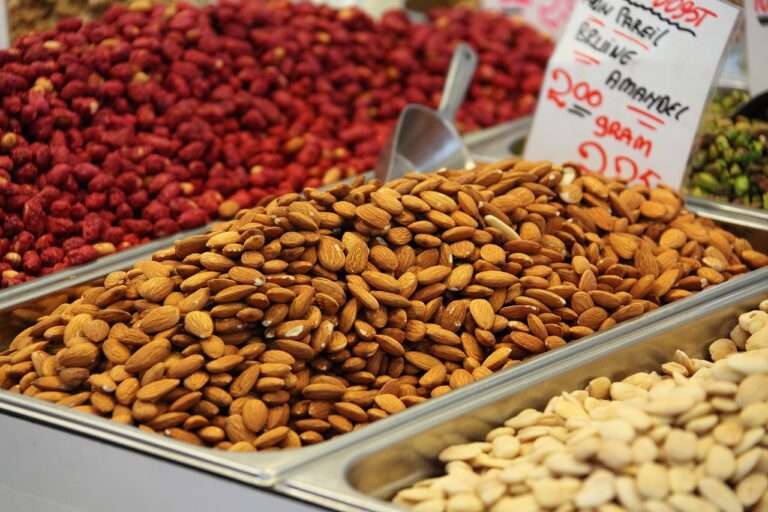Analyzing the Role of Food Exports in Supporting Local Farmers
allpaanel, cricket bet 99, lotus 365.win: Analyzing the Role of Food Exports in Supporting Local Farmers
When it comes to the food industry, one of the key players that often gets overlooked is the local farmer. These hardworking individuals are the backbone of our food supply, yet many struggle to make a living wage. One way that local farmers can increase their income and support their livelihoods is through food exports.
In this article, we will delve into the role of food exports in supporting local farmers, exploring how exporting their products can benefit both farmers and their communities.
The Benefits of Food Exports for Local Farmers
1. Increased Market Opportunities
One of the most significant benefits of food exports for local farmers is the access to new market opportunities. By exporting their products to international markets, farmers can diversify their customer base and reduce their reliance on a single market.
2. Higher Prices
Exporting food products can also lead to higher prices for local farmers. International markets may be willing to pay more for high-quality, locally-produced products, allowing farmers to increase their profit margins.
3. Economic Growth
Food exports can contribute to economic growth in rural communities. When farmers earn more from exporting their products, they are more likely to reinvest in their farms, purchase new equipment, and hire additional workers. This can stimulate the local economy and create new job opportunities.
4. Improved Sustainability Practices
Many international markets have strict regulations on food production and sustainability practices. By exporting their products, local farmers may be required to adhere to these regulations, leading to improved sustainability practices on their farms.
Challenges of Food Exports for Local Farmers
1. Logistics and Infrastructure
One of the main challenges that local farmers face when exporting their products is the logistical and infrastructural requirements. Exporting food products often requires specialized transportation, storage, and packaging facilities, which can be costly for small-scale farmers.
2. Quality Control
Maintaining consistent quality standards can be a challenge for local farmers exporting their products. International markets may have strict requirements for food safety and quality, requiring farmers to invest in equipment and processes to meet these standards.
3. Competition
Local farmers may also face stiff competition from larger, industrialized farms when exporting their products. These farms may have the resources and economies of scale to produce and export food products at a lower cost, making it difficult for local farmers to compete.
4. Market Volatility
The global food market is highly volatile, with prices fluctuating based on factors such as weather conditions, political instability, and consumer preferences. Local farmers exporting their products must be prepared to navigate these market fluctuations to ensure their profitability.
How Food Exports Can Support Local Farmers
1. Market Research and Development
To support local farmers in exporting their products, governments and agricultural organizations can provide market research and development services. This can help farmers identify new market opportunities, understand consumer preferences, and develop strategies to enter international markets.
2. Access to Financial Support
Access to financial support, such as grants, loans, and subsidies, can help local farmers cover the costs associated with exporting their products. Governments and agricultural organizations can provide financial assistance to help farmers invest in infrastructure, equipment, and training for food exports.
3. Training and Capacity Building
Training and capacity building programs can support local farmers in improving their knowledge and skills related to food exports. These programs can provide farmers with the tools and resources they need to meet quality standards, navigate export regulations, and build relationships with international buyers.
4. Marketing and Promotion
Effective marketing and promotion are essential for local farmers looking to export their products. Governments and agricultural organizations can support farmers in developing marketing strategies, branding their products, and showcasing their unique selling points to international buyers.
The Future of Food Exports for Local Farmers
As the global food market continues to expand, the role of food exports in supporting local farmers will become increasingly important. By promoting food exports, governments, agricultural organizations, and consumers can help local farmers increase their incomes, improve sustainability practices, and contribute to economic growth in rural communities.
FAQs
Q: How can local farmers find international buyers for their products?
A: Local farmers can connect with international buyers through trade shows, online marketplaces, and government-led trade missions. Building relationships with importers, distributors, and retailers in target markets is essential for successful food exports.
Q: What types of food products are in high demand in international markets?
A: High-quality, organic, and ethically-sourced food products are in high demand in international markets. Products such as specialty fruits and vegetables, artisanal cheeses, and gourmet snacks are popular among international consumers.
Q: How can local farmers ensure the quality and safety of their exported products?
A: Local farmers can ensure the quality and safety of their exported products by implementing strict quality control measures, adhering to international food safety standards, and obtaining certifications such as organic and fair trade certifications.
Q: What are some of the barriers that local farmers face when exporting their products?
A: Some of the barriers that local farmers face when exporting their products include high transportation costs, trade barriers and tariffs, language and cultural barriers, and lack of access to market information and resources.
In conclusion, food exports can play a vital role in supporting local farmers by providing them with increased market opportunities, higher prices, and economic growth. By addressing the challenges and leveraging the benefits of food exports, governments, agricultural organizations, and consumers can help local farmers thrive in the global marketplace.







